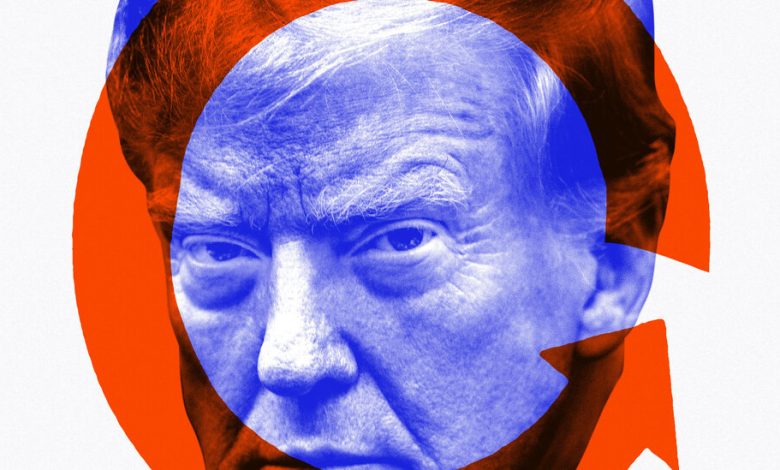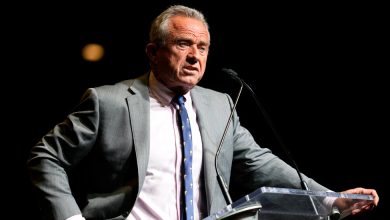What Would the Economy Look Like Under a Second Trump Term?

Speculating about how the economy would perform under a second Donald Trump presidency normalizes the candidacy of a deeply flawed human being. But we’ll all have to live in Trump’s world if he’s elected. So it seems important to talk about the economic outlook under another Trump term.
I talked this week to several of Trump’s economic advisers. They told me that a Trump 2.0 administration would be a lot like the Trump 1.0 administration — except, they hope, more disciplined and more effective.
Trump has said he wants to extend in full the Tax Cuts and Jobs Act of 2017, parts of which are set to expire at the end of 2025. The act slashed the corporate income tax to 21 percent from 35 percent and lowered personal rates. He hasn’t said much about how he would offset the revenue cuts with spending cuts, aside from trying to repeal the clean energy spending in the Inflation Reduction Act, which wouldn’t do the trick.
Trump’s plan for fighting inflation focuses on increasing the supply of goods and services — for example, increasing domestic oil production to lower fuel prices and deregulating the economy so companies can produce more at lower costs. The hope: If Trump can pull down inflation, the Federal Reserve will gain confidence to lower interest rates, which will boost the economy’s growth.
Trump’s plan for trade is to use tariffs and the threat of tariffs to push other nations — China, in particular — to lower barriers to American products and curb subsidies of their own exports. His policy on immigration will be to stop the illegal kind, not the legal kind, the advisers said.
Presented this way, Trump’s platform sounds like that of a John McCain or a Mitt Romney. In practice, though, there’s a good chance that on the economy, Trump 2.0 would be as populist and convention bashing as Trump 1.0, if not more so. For one thing, this time he would start the term with cabinet members and other advisers who are 100 percent on his team — not the likes of Gary Cohn, a centrist Democrat and former No. 2 at Goldman Sachs who served as the first director of his National Economic Council until Trump replaced him with the more like-minded Larry Kudlow, a TV financial news host.




